A
Industrial & Labor Leaders
________________________________________
Meet the people who played key roles in shaping the area's labor and industrial past. Through stories, photographs, and archival materials, these galleries honor the workers, organizers, innovators, and leaders whose efforts left a lasting impact on local communities and the broader labor movement.
State Office Holders
______________________
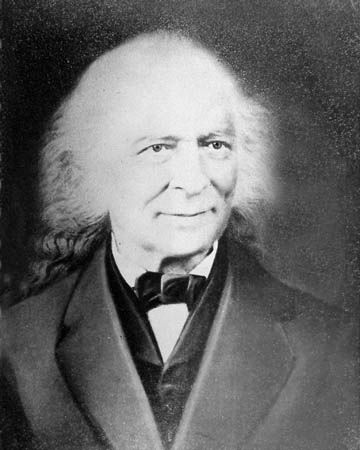
George Bunsen
(1794-1872)
German Born Educator
Member Of Illinois' First State Board of Education 1856
Bunsen, a German born educator and inventor, devoted his life to the idea that an educated public was essential for a successful democracy. He was a German radical, a member of the German revolutionary group "Burchanschaft" who fled Germany in 1834. He came to Belleville, IL. In 1848, he was elected as a delegate to the Illinois Constitutional Convention. He was a member of Illinois' first State Board of Education in 1856. He promoted and was instrumental in establishing the first "Normal School" in the state -- Illinois State University. He established the annual St. Clair County Institute for Teachers and served as a member of the Belleville School Board from 1859-1872. Belleville's Bunsen School was named in his honor and now serves as the Nichols Community Center.
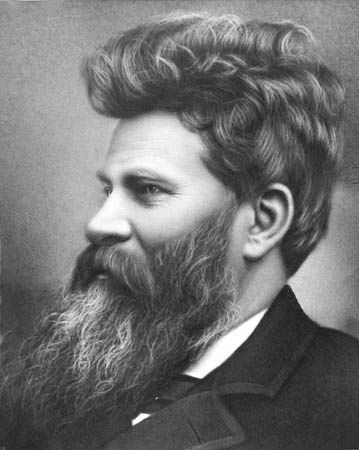
Henry Raab
(1837-1901)
German Born Educator
State Superintendent of Public Instruction
1882-1886
Henry Raab was born in Westzler, Germany in 1837, and moved to Belleville in 1854. "No instruction is of any avail when it leaves the child indifferent." Raab, a German born educator, served as the first full-time superintendent of the Belleville School District. He was instrumental in building the Lincoln School of West Belleville and the existing Henry Raab School is named in his honor. From 1882 to 1886, he served as the State Superintendent of Public Instruction and instituted a program of mandatory teachers institutes by county.
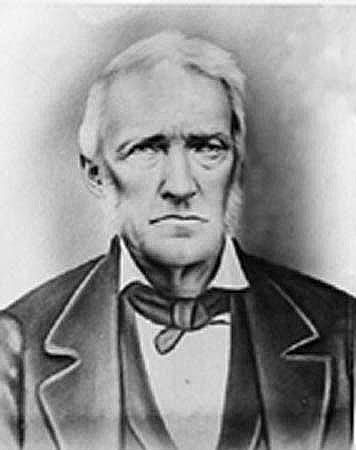
John Reynolds
(1788-1865)
4th Governor of State of Illinois
Reynolds, "The Old Ranger", served as the fourth Governor of the State of Illinois 1830-1834. He was a compulsive campaigner, populist and a defender of slavery in Illinois. He operated a personal printshop at his residence in Belleville. From 1818 to 1828 he served as an Associate Judge of the Illinois Supreme Court. He also served four terms at a State Legislator. From 1833 to 1848, he served as a U.S. Congressman. He was a veteran of the War of 1812. As an author he published his "Pioneer History of Illinois" in 1852 and "My Own Times" in 1855. He was born in Pennsylvania and emigrated to Illinois in 1800.
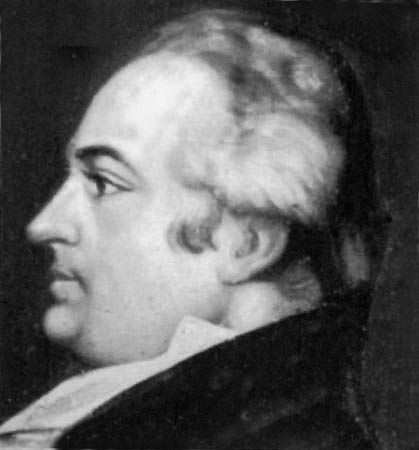
Ninian Edwards
(1775-1833)
Territorial Governor
1809 to 1818
3rd Gov. of State of Illinois
Edwards, land speculator, statesman and Governor, became an authority on frontier government. From 1809 to 1818, he served as the only Territorial Governor of Illinois. As Territorial Governor from 1809 to 1818, he was in charge of the salines of Southern Illinois - a source of revenue for the Federal Government. In 1819, he was elected to the U.S. Senate, and in 1826, he became the third Governor of the State of Illinois. Edwards is well known locally as the man who promoted Belleville as a town site after he had purchased all available town lots in 1828. He advertised the desirability of Belleville in America and abroad. He died at Belleville in 1833 while ministering to cholera victims.
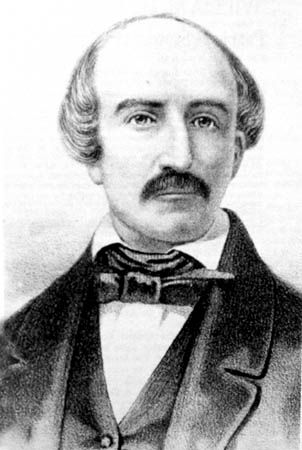
William H. Bissell
(1811-1860)
11th Governor of the
State of Illinois
1st Republican Governor
State of Illinois
1st Republican Governor
Bissell was the first Republican and the first Catholic to serve as Governor of the State of Illlinois. He was elected the eleventh governor in 1857. The anti-slavery candidate was also a well-known extemporaneous speaker, medical doctor, attorney and veteran. He was elected to the Illinois Legislature in 1840, and from 1848 to 1854, he served as a U.S. Congressman. He was born in New York and emigrated to Illinois upon graduation from Law School in Lexington, KY. Bissell also served in the Mexican War.
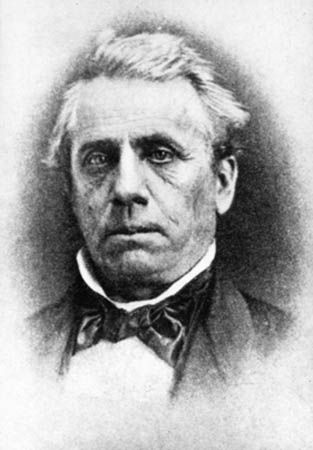
Gustave Koerner
(1809-1896)
Lt. Governor of State of Illinois 1853-1857
German born, Koerner, came to Belleville in 1833 -- one of a number of students who fled Germany because of his liberal, political and revolutionary activities. He is well known as an author, attorney, judge, statesman and foreign minister. He was a member of the Illinois legislature at various times in his lengthy political career -- 1842, 1844, 1870. In 1845, he was elected to the Illinois Supreme Court. He was the first German immigrant elected to state office. He served as Lt. Governor from 1853-1857. President Lincoln appointed him America's Minister to Spain in 1862. In 1872 he served as an Illinois Railroad Commissioner.
Koerner, a staunch supporter of Abraham Lincoln, and vocal in his disrespect to the institution of slavery, was instrumental in organizing the Republican Party in Illinois and was an acknowledged leader of the Republican Party in Southern Illinois. Koerner was president of the committee which nominated Lincoln for U.S. Senator in 1858. In recognition of Koerner's political accomplishments at the state level, his name is carved in the Centennial Building at Springfield. He sadly served as Lincoln's pallbearer.
Koerner published "The German Element in the United States" in 1880 and "From Spain" in 1867. Koerner's Memoirs, a two-volume set, is a respected historical resource for those interested in the German influence in Illinois.
Koerner, a staunch supporter of Abraham Lincoln, and vocal in his disrespect to the institution of slavery, was instrumental in organizing the Republican Party in Illinois and was an acknowledged leader of the Republican Party in Southern Illinois. Koerner was president of the committee which nominated Lincoln for U.S. Senator in 1858. In recognition of Koerner's political accomplishments at the state level, his name is carved in the Centennial Building at Springfield. He sadly served as Lincoln's pallbearer.
Koerner published "The German Element in the United States" in 1880 and "From Spain" in 1867. Koerner's Memoirs, a two-volume set, is a respected historical resource for those interested in the German influence in Illinois.
